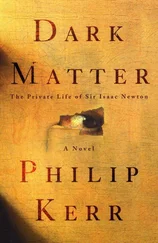Philip Kerr - A Man Without Breath
Здесь есть возможность читать онлайн «Philip Kerr - A Man Without Breath» весь текст электронной книги совершенно бесплатно (целиком полную версию без сокращений). В некоторых случаях можно слушать аудио, скачать через торрент в формате fb2 и присутствует краткое содержание. Год выпуска: 2013, Издательство: Quercus, Жанр: Триллер, на английском языке. Описание произведения, (предисловие) а так же отзывы посетителей доступны на портале библиотеки ЛибКат.
- Название:A Man Without Breath
- Автор:
- Издательство:Quercus
- Жанр:
- Год:2013
- ISBN:нет данных
- Рейтинг книги:4 / 5. Голосов: 1
-
Избранное:Добавить в избранное
- Отзывы:
-
Ваша оценка:
- 80
- 1
- 2
- 3
- 4
- 5
A Man Without Breath: краткое содержание, описание и аннотация
Предлагаем к чтению аннотацию, описание, краткое содержание или предисловие (зависит от того, что написал сам автор книги «A Man Without Breath»). Если вы не нашли необходимую информацию о книге — напишите в комментариях, мы постараемся отыскать её.
A Man Without Breath — читать онлайн бесплатно полную книгу (весь текст) целиком
Ниже представлен текст книги, разбитый по страницам. Система сохранения места последней прочитанной страницы, позволяет с удобством читать онлайн бесплатно книгу «A Man Without Breath», без необходимости каждый раз заново искать на чём Вы остановились. Поставьте закладку, и сможете в любой момент перейти на страницу, на которой закончили чтение.
Интервал:
Закладка:
‘I see what you mean.’ I offered them each a cigarette which, Polish cigarettes being what they were, the two Poles accepted gratefully. ‘And you’re absolutely right. This does sound as if the field marshal is behind it. I don’t think his sense of honour and pride has ever recovered from the Seven Years War. However I can promise you gentlemen that this matter is being followed at the highest levels in Berlin. It was Doctor Goebbels himself who insisted that you be given control of the investigation here in Katyn. He’s told me nothing is to be done that interferes in any way with your pre-eminent role in this matter. My own orders make it quite clear that the German military authorities in Smolensk are to give the Polish Red Cross every assistance.’
I smiled to myself and put my hand to my mouth as if I might belch after swallowing such egregious lies whole – not just the lies Goebbels told, but the lies I’d told myself.
‘It may be however that these orders need to be heard again, in certain quarters. I can even write it down in the lieutenant’s ring-file if you like. Just to make sure that he remembers.’
‘Thank you,’ said Archdeacon Jasinski. ‘You’ve been most helpful.’
I figured he was the person in the Polish Red Cross probably most in fear of the Nazis. According to what Freiherr von Gersdorff had told me, when Jasinski had been the bishop of Lodz, he had been subjected to close home arrest. The governor of the Kalisz-Lodz District, one Friedrich Ubelhor, had forced him to sweep the square in front of the cathedral, while his auxiliary bishop, Monsignor Tomczak, had been sent to a concentration camp after suffering a brutal beating. That kind of thing can test a man’s faith not just in his fellow men but in God, too. I’d seen the archdeacon crossing himself on the edge of grave number one. He did it with such alacrity that I wondered if he was reminding himself of what he believed, although the evidence of his own eyes ought to have told him that God was not to be found in Katyn Wood and probably nowhere else either. Even the cathedral felt more like a museum.
I smiled. ‘Don’t thank me yet, archdeacon. Give me time here. History teaches that my superiors can always be depended on to entertain me with one disappointment heaped on top of another.’
‘One more thing,’ said the count.
‘Two,’ said the archdeacon. ‘The Szkola Podchorazych.’
‘Please.’ I glanced at my wristwatch. ‘I think I’m nearing the limit of my usefulness.’
‘The lieutenant’s ring-file contains other mistakes that we’ve tried to bring to his attention,’ said the count. ‘He says the trees on the grave are four years old, but this would mean they were planted in 1939, a year before-’
‘I think we can all remember what happened in 1939,’ I said.
‘And he says the epaulettes on some of the victims have the initials “J.P.” when they are actually “S.P.”, which is the Polish Cadet Officers’ School.’
‘If you’ll forgive me, count, I have to go to the airport and help look after the distinguished medical representatives of twelve countries, not to mention journalists and other Red Cross officials.’
‘Of course,’ said the count.
‘But rest assured, gentlemen, I promise to speak to Berlin today about those two other matters we discussed. It will give me something to do.’
*
Buhtz, Ines, Sloventzik and I went in a coach to fetch the experts and their assistants from the airport. I had a peculiar feeling about that coach. Supplied by the SS, it had new windows and the floor under the carpet was made of thick steel; beneath the hood was a Saurer engine, but it was fitted with a curious gas generator that ran on wood chips – you could smell the huge amounts of carbon monoxide it created long after the thing had gone – because, according to the driver, gasoline was short and all our spare supplies were now being directed north to supply the Ninth Army. That much was true, I knew, but still, I had a peculiar feeling about that coach.
Ines told me she was very excited because the international commission included all of the most distinguished names in the field of forensic medicine outside of Great Britain and the United States, and that she hoped to learn much from these men during their three days in Smolensk. She was as eager as if she’d been a little girl who was going to meet her favourite movie stars. Professor Naville of Geneva and Professor Cortes of Madrid were the two she declared to be specially eminent in her field; the rest were from as far afield as Belgium, Bulgaria, Denmark, Finland, Croatia, Italy, Holland, Bohemia and Moravia, Romania, Slovakia, Hungary and France. Not officially part of the international commission, Buhtz and Ines were going to present the experts with evidence they had collected from the nine hundred and eight bodies that had so far been exhumed; but the commission’s all-important report was to be compiled without any German participation. Being the ringmaster suited Buhtz just fine. He was tired. Since the beginning of April he’d carried out more post-mortems than an Etruscan soothsayer and identified almost seven hundred men. Ines had performed several dozen post-mortems herself, and when it was all over and done with I wondered what she’d make of my own entrails.
In truth, none of the great experts were exciting to look at; they were mostly a collection of elderly-looking, pipe-smoking gentlemen wearing gabardine coats with battered briefcases and equally battered felt hats. None of them looked remotely like what this was: a lot of money and a great deal of trouble. And it was perhaps no more a genuine international commission of inquiry than a pathologists’ jamboree. What it was – if anyone had stopped and listened to the operetta of silence that had been written by the Nazis – was the most expensive piece of propaganda ever dreamed up by the doctor; with a little help from me, of course. I had my own reasons for that, and if things worked out, then maybe I’d have achieved something important.
When the plane landed and the experts were counted off on Sloventzik’s clipboard we learned that at the last minute Professor Cortes from Spain had decided not to come and Dr Agapito Girauta Berruguete, who was a professor of Pathological Anatomy at Madrid University, had taken his place.
This seemed to be disturbing news to Ines, who was silent all the way from the airport back to Krasny Bor. I asked her about it but she smiled a sad little smile and said it was nothing in the kind of way that made you think that there was more in it than she was prepared to tell – the way women sometimes do. It’s what makes them mysterious to men and, on occasion, infuriating too. But they will have their secrets, and there’s no good worrying at it like a dog with its teeth clenched on a piece of rag; the best thing you can do when that happens is just to let it go.
*
After leaving the experts to get themselves settled in at Krasny Bor, I drove the short distance back to the castle to send a telegram to the ministry asking them to countermand any local orders about a separate burial for Volksdeutsche Polish officers and to correct the numbers of dead in the official broadcasts. Lutz was the signaller on duty. While I was waiting for a reply from the Wilhelmstrasse, I offered him a cigarette and asked what he knew about the call-girl ring that Ribe and Quidde had been running.
‘I knew they were working some kind of racket, but I didn’t know it was girls,’ he said. ‘I thought it was army surplus, that kind of thing. Cigarettes, saccharin, a little bit of petrol.’
‘Captain Hammerschmidt from the Gestapo appears to have been a regular client,’ I said. ‘Which would explain why he was so reluctant to follow up on your initial report.’
Читать дальшеИнтервал:
Закладка:
Похожие книги на «A Man Without Breath»
Представляем Вашему вниманию похожие книги на «A Man Without Breath» списком для выбора. Мы отобрали схожую по названию и смыслу литературу в надежде предоставить читателям больше вариантов отыскать новые, интересные, ещё непрочитанные произведения.
Обсуждение, отзывы о книге «A Man Without Breath» и просто собственные мнения читателей. Оставьте ваши комментарии, напишите, что Вы думаете о произведении, его смысле или главных героях. Укажите что конкретно понравилось, а что нет, и почему Вы так считаете.












